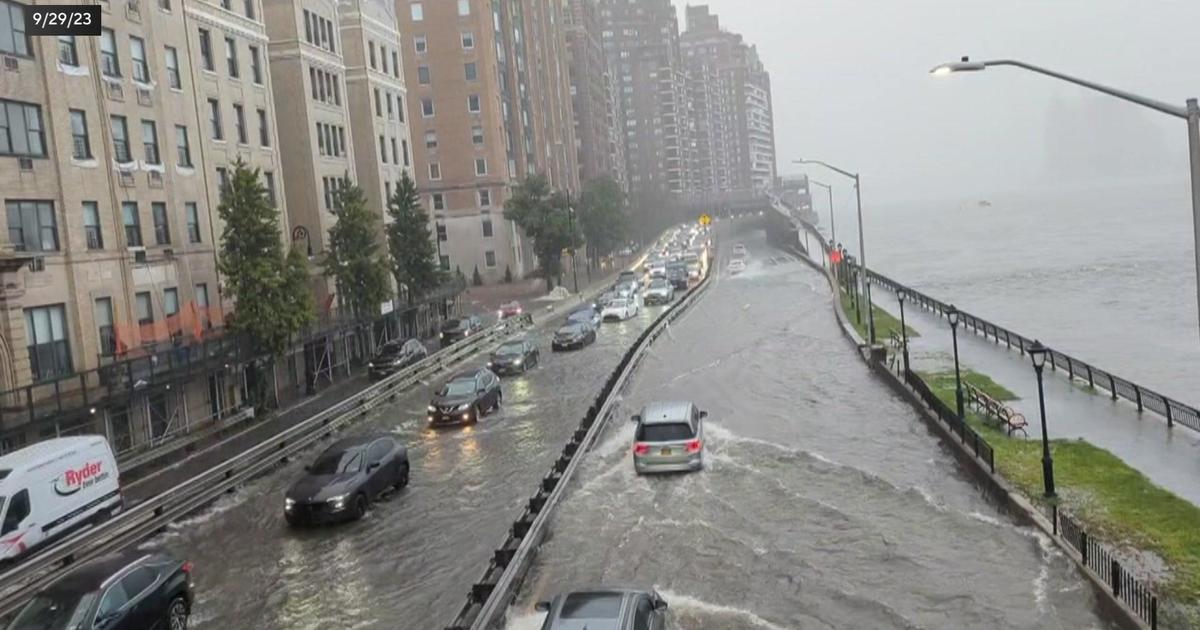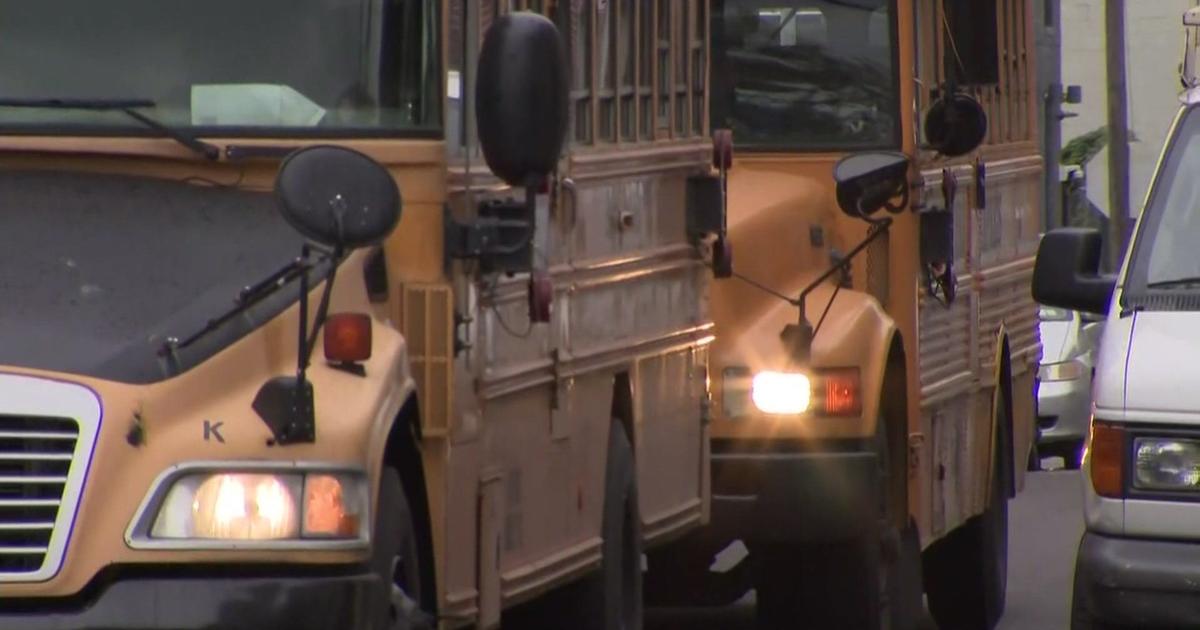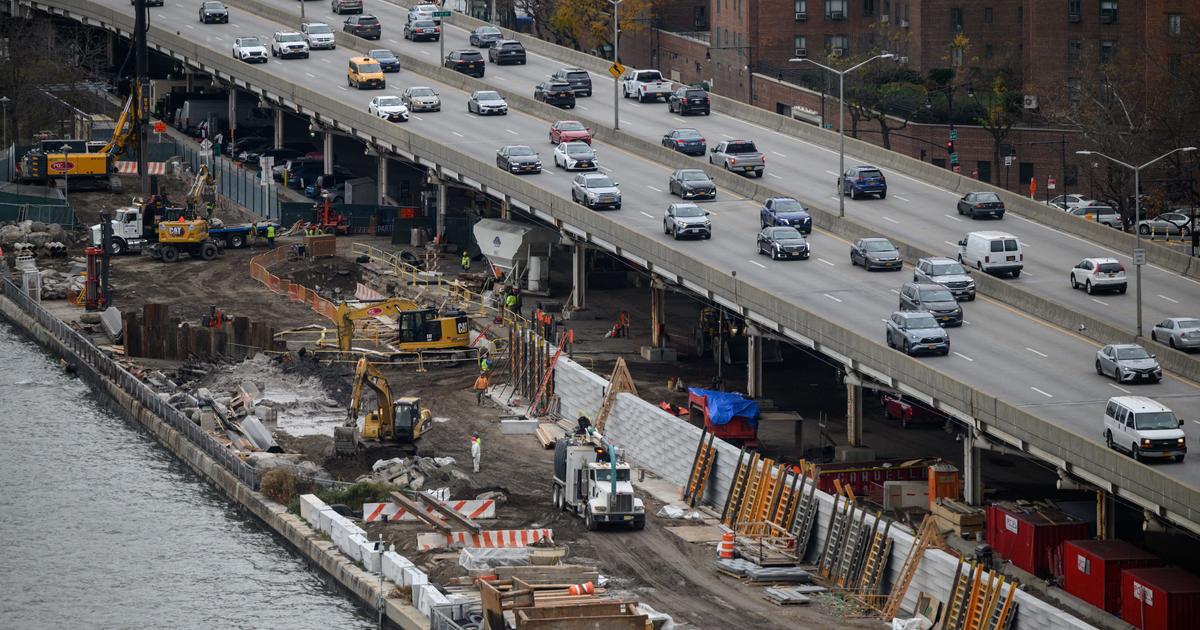City Pledges Support As MTA Grapples To Fill Gaping Hole In Capital Plan
NEW YORK (CBSNewYork/AP) -- Mayor Bill de Blasio's administration wants the Metropolitan Transportation Authority to work with New York City to figure out how to fund a multi-billion gap in the transportation agency's capital plan.
The MTA's 2015-2019 capital plan calls for $32 billion in projects, of which nearly half needs funding sources.
The MTA board got a bit of good news in the financial plan Wednesday: $1 billion has been found through sources like higher real estate transaction tax receipts and increased fare and toll revenues, WCBS 880's Marla Diamond reported.
But the capital plan budget gap is still $13 billion, and MTA Chairman and CEO Thomas Prendergast said they can't rely on the feds.
MTA Gets Some Good News At Board Meeting
"We're in uncharted waters on a federal level. When I entered my career I thought the transportation trust fund was going to be the nirvana that would handle this for my entire career, but that's broke," Prendergast said. "There is a transportation infrastructure problem facing this country that needs to be dealt with, and it will be dealt with. But in the meantime we've got to move on."
City Department of Transportation Commissioner Polly Trottenberg pledged the mayor's support.
"There's no big surplus, but we are ready to a take look at all possible solutions and a lot of them no doubt will require some tough decisions," Trottenberg said. "We think all possible options will be on the table. Contrary to popular belief we are not sitting on some gushing amount of surplus."
In a letter to the board, First Deputy Mayor Anthony Shorris said one option would be adding tolls to the East River bridges.
"We are ready to sit down today and have a full and frank discussion about comprehensive funding options for this essential engine of the state's economy,'' the letter said. "What we cannot do is stand by and allow the future of the state, the region and the city to be threatened by our inability to come together.''
The letter pointed out the city already contributes 70 percent of the MTA's operating budget through taxes, tolls and fares. It said options to consider included increasing state and local jurisdiction financial aid to the MTA.
It also pointed out how little control the city has over the MTA, which is a state agency controlled by Gov. Andrew Cuomo. Cuomo and de Blasio have had an ongoing feud.
"As we have said before, the call for the city to increase its contribution to the MTA's costs reflects the fact that the city is the primary beneficiary of its services,'' said MTA spokesman Aaron Donovan.
"While we welcome the City's first response to the proposal the MTA made some 12 weeks ago, in the meantime the MTA has been working closely with Governor Cuomo's office on a plan to meet the essential capital needs of a system that is critical to the city's daily life and economic strength of the region,'' said Donovan. "The paltry amount the city has provided for decades -- especially given the city's recent historic surplus -- can't continue if we are to maintain a safe and reliable transit network, let alone improve and expand rider services.''
In the executive budget, de Blasio increased city funding to the MTA to $657 million. The MTA asked the city in May to again increase its contribution.
"We got serious problems and we need the governor, and the mayor and the legislative leaders to stand up for the riding public," Gene Russianoff, of the Straphangers Campaign interest group, said before Wednesday's MTA board meeting. "We'll be watching."
(TM and © Copyright 2015 CBS Radio Inc. and its relevant subsidiaries. CBS RADIO and EYE Logo TM and Copyright 2015 CBS Broadcasting Inc. Used under license. All Rights Reserved. This material may not be published, broadcast, rewritten, or redistributed. The Associated Press contributed to this report.)



